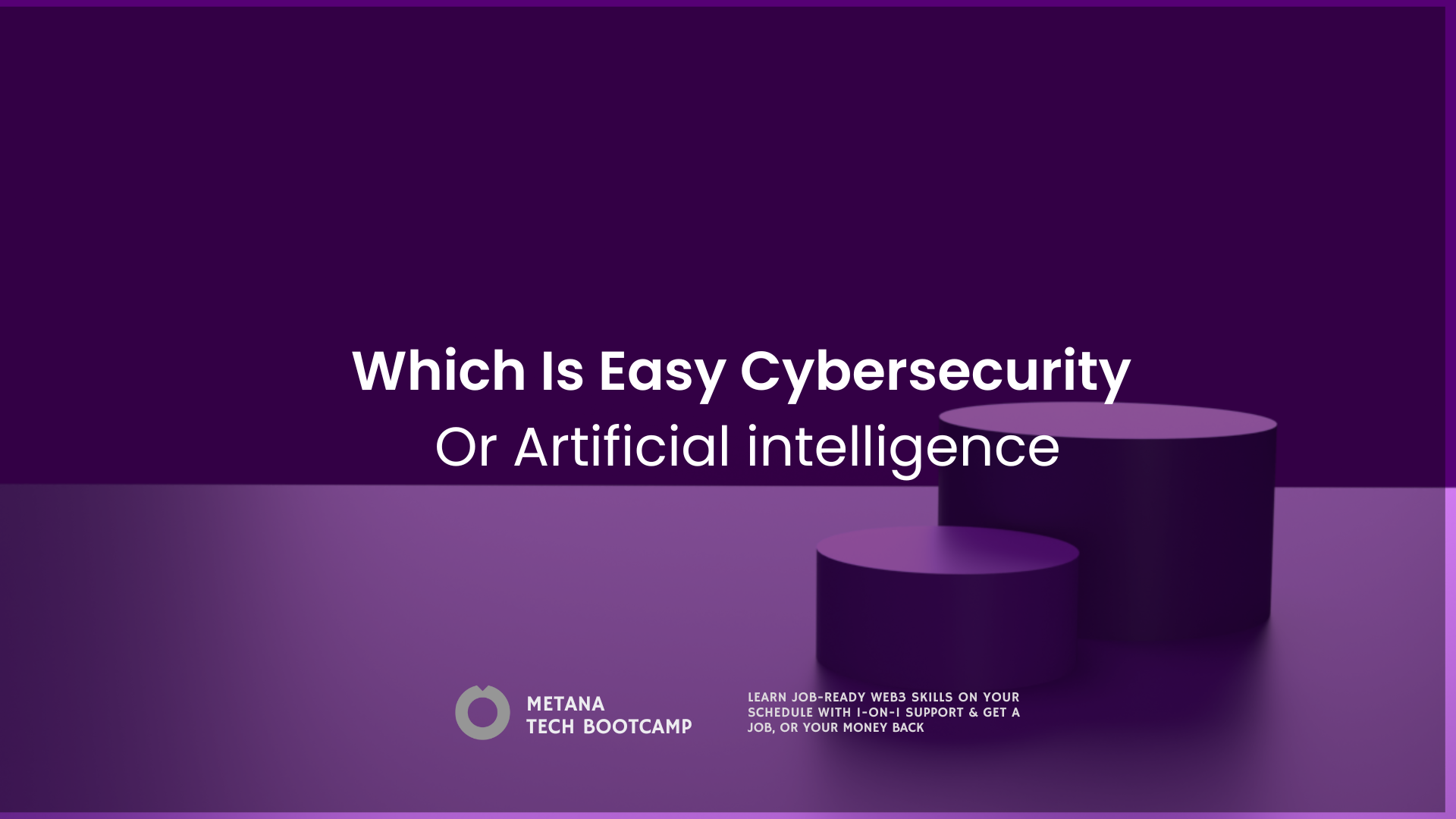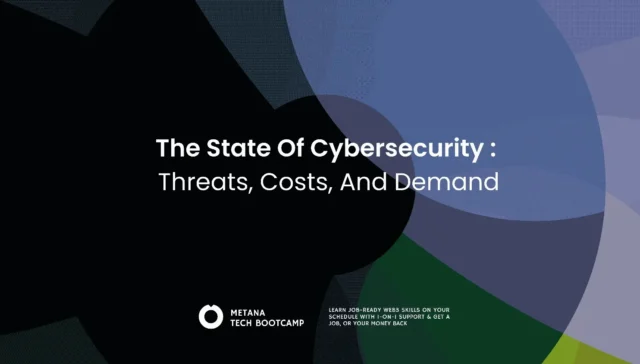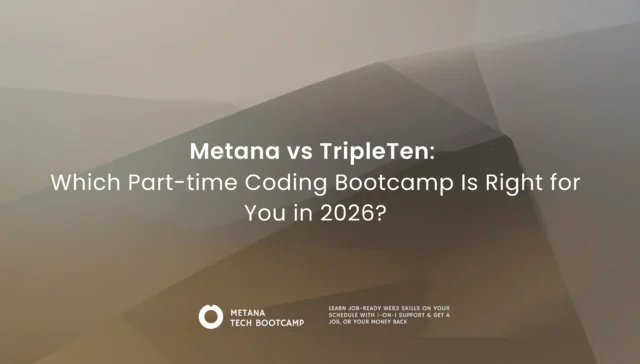Choosing between cybersecurity and artificial intelligence careers feels overwhelming when both fields promise high salaries and job security. The question “which is easy cybersecurity or artificial intelligence” has become increasingly common among career switchers and tech newcomers in 2025.
Cybersecurity is significantly easier to break into than AI, with lower academic barriers, more beginner-friendly resources, and smoother learning curves. However, “easier” doesn’t automatically mean “better” for your specific situation.
This guide analyzes learning requirements, market demand, salary potential, and career progression for both fields. You’ll discover which path aligns with your background, timeline, and professional goals based on real 2025 market data.
Want a quick overview?
Skip ahead to the Cybersecurity vs AI Comparison Table
Understanding the Core Differences Between Cybersecurity and Artificial Intelligence
What Is Cybersecurity?
Cybersecurity involves protecting digital systems, networks, and data from malicious attacks and unauthorized access. The field encompasses threat detection, incident response, vulnerability assessment, and security policy implementation across organizations.
Key cybersecurity specializations include:
- Security Operations Center (SOC) analysis
- Penetration testing and ethical hacking
- Digital forensics and incident response
- Governance, risk, and compliance (GRC)
- Security architecture and engineering
Related resources: Cybersecurity vs Ethical Hacking
What Is Artificial Intelligence?
Artificial Intelligence refers to the simulation of human intelligence by machines designed to perform tasks that typically require human cognition, including learning, thinking, problem-solving, language comprehension, and perception.
Major AI specializations include:
- Machine learning engineering
- Data science and analytics
- Natural language processing (NLP)
- Computer vision and robotics
- AI research and development
Cybersecurity vs AI Difficulty
Cybersecurity Learning Requirements
Cybersecurity focuses on practical skills over complex algorithms, with many roles accepting certifications like Security+ instead of degrees. The learning path offers multiple entry points:
Here’s an example of what it can be for you:
Foundation Phase (3-6 months):
- Basic networking concepts (TCP/IP, DNS, firewalls)
- Operating systems knowledge (Windows, Linux)
- Security fundamentals and terminology
- Introduction to common attack vectors
Practical Skills Development (4-8 months):
- Hands-on experience with security tools
- Incident response procedures
- Vulnerability assessment techniques
- Log analysis and SIEM platforms
Specialization (6-12 months):
- Industry certifications (CompTIA Security+, CySA+)
- Specialized skills in chosen focus area
- Portfolio development with real projects
- Interview preparation and soft skills
Find out the best bootcamps for cybersecurity here!
AI Learning Requirements
AI demands a more structured, mathematically intensive approach:
Mathematical Foundation (6-12 months):
- Linear algebra and calculus
- Statistics and probability theory
- Discrete mathematics
- Data structures and algorithms
Programming Mastery (6-8 months):
- Python ecosystem (NumPy, Pandas, TensorFlow)
- R for statistical computing
- SQL for data management
- Software engineering principles
Machine Learning Core (8-12 months):
- Supervised and unsupervised learning
- Neural networks and deep learning
- Model evaluation and optimization
- Feature engineering and data preprocessing
Advanced Specialization (6-12 months):
- Domain-specific applications
- MLOps and production deployment
- Research methodology
- Cloud platform proficiency
Entry Barriers and Prerequisites Comparison
Educational Background Requirements
Cybersecurity Entry Barriers:
- High school diploma sufficient for many roles
- Associate degree helpful but not mandatory
- Self-taught professionals widely accepted
- Military experience valued highly
- Career changers from IT backgrounds common
AI Entry Barriers:
- Bachelor’s degree typically required (computer science, mathematics, engineering)
- Master’s degree preferred for advanced positions
- PhD necessary for research roles
- Strong academic performance in STEM subjects
- Formal education highly emphasized by employers
Technical Skills Prerequisites
Cybersecurity Day-One Skills:
- Basic computer literacy
- Fundamental networking knowledge
- Understanding of common operating systems
- Problem-solving and analytical thinking
- Communication skills for documentation
AI Day-One Skills:
- Advanced mathematical proficiency
- Strong programming background
- Statistical analysis capabilities
- Research methodology understanding
- Data manipulation and visualization
Market Demand and Job Availability in 2025
Cybersecurity Job Market Outlook
Cybersecurity professionals are in urgent demand, with cyberattacks increasing and companies investing heavily in protection. The field shows remarkable stability:
Market Statistics:
- 3.5 million unfilled positions globally
- 35% projected growth through 2031
- Consistent demand across all industries
- Geographic flexibility with opportunities everywhere
- Recession-resistant career stability
Entry-Level Opportunities:
- SOC Analyst: $45,000-$65,000
- Junior Security Specialist: $50,000-$70,000
- Compliance Coordinator: $48,000-$68,000
- IT Security Support: $42,000-$60,000
AI Job Market Reality
AI offers higher starting salaries and rapid upward mobility, but cybersecurity provides a broader range of entry points. However, the market presents unique challenges:
Market Characteristics:
- High competition for entry-level positions
- Geographic concentration in tech hubs
- Sensitivity to economic cycles
- Preference for experienced candidates
- Startup ecosystem dependency
Entry-Level Compensation:
- Junior Data Scientist: $75,000-$105,000
- ML Engineer I: $85,000-$120,000
- AI Research Assistant: $80,000-$110,000
- Data Analyst: $65,000-$90,000
Skills Development and Career Progression
Cybersecurity Career Ladder
Tier 1: Foundation Level (0-2 years)
- SOC Analyst I/II: $45,000-$75,000
- Security Technician: $50,000-$70,000
- Compliance Specialist: $48,000-$68,000
Tier 2: Specialist Level (2-5 years)
- Security Engineer: $75,000-$110,000
- Incident Response Analyst: $70,000-$95,000
- Penetration Tester: $80,000-$115,000
Tier 3: Senior/Leadership (5+ years)
- Security Architect: $120,000-$160,000
- Security Manager: $110,000-$150,000
- Chief Information Security Officer (CISO): $180,000-$350,000
AI Career Progression Path
Entry Level (0-2 years)
- Junior Data Scientist: $75,000-$105,000
- ML Engineer I: $85,000-$120,000
- AI Research Assistant: $80,000-$110,000
Mid-Level (2-5 years)
- Senior Data Scientist: $120,000-$170,000
- ML Engineer II/III: $130,000-$190,000
- AI Product Manager: $125,000-$180,000
Senior Level (5+ years)
- Principal Data Scientist: $180,000-$250,000
- AI Research Scientist: $200,000-$350,000
- VP of AI/Machine Learning: $250,000-$450,000
AI Success Metrics
Industry training program outcomes show:
- Average time to job-ready: 18-24 months
- Bootcamp completion rate: 55-70%
- Job placement rate: 35-55% within 6 months
- Self-taught success rate: 15-25%
Cost Analysis: Investment vs Returns
Cybersecurity Investment Breakdown
Education Costs:
- Self-study materials: $500-$2,000
- Online bootcamp: $8,000-$15,000
- Certification exams: $300-$500 each
- Home lab setup: $1,000-$3,000
- Total investment: $2,000-$20,000
Return on Investment:
- Break-even point: 12-18 months
- Average salary increase: $25,000-$35,000
- Career switcher success rate: 65%
AI Investment Requirements
Education Costs:
- University degree: $40,000-$120,000
- Bootcamp program: $12,000-$25,000
- Online courses: $2,000-$5,000
- Computing resources: $2,000-$5,000
- Total investment: $15,000-$150,000
Return on Investment:
- Break-even point: 24-36 months
- Average salary increase: $40,000-$60,000
- Career switcher success rate: 35%
Emerging Trends: AI’s Impact on Both Fields
AI Transformation in Cybersecurity
AI is reshaping cybersecurity by automating threat detection and response, with 44% of professionals reporting no impact on hiring and 28% seeing AI creating new opportunities for entry-level talent.
New Hybrid Opportunities:
- AI Security Specialist: $110,000-$170,000
- ML-powered SOC Analyst: $75,000-$105,000
- Cybersecurity Data Scientist: $95,000-$135,000
- AI Risk Assessment Specialist: $85,000-$125,000
AI Market Evolution
The AI field continues rapid evolution with new specializations:
- Prompt engineering and LLM optimization
- AI ethics and responsible AI development
- Edge AI and mobile intelligence
- Quantum machine learning research
Decision Framework: Choosing Your Path
Choose Cybersecurity If You:
- Need stable employment during economic uncertainty
- Prefer hands-on, practical problem-solving
- Want geographic flexibility and remote work options
- Enjoy variety in daily tasks and challenges
- Value work-life balance and predictable schedules
- Don’t want extensive mathematical prerequisites
- Can invest 8-12 months in focused learning
Choose AI If You:
- Have strong mathematical and programming foundations
- Enjoy deep technical research and experimentation
- Can commit 18-24 months to intensive study
- Want maximum earning potential long-term
- Thrive in cutting-edge technology environments
- Don’t mind geographic limitations to tech hubs
- Are comfortable with higher entry competition
Summarized Table On Cybersecurity and Artificial Intelligence
| Factor | Cybersecurity | Artificial Intelligence |
|---|---|---|
| Learning Time | 8–12 months | 18–24 months |
| Entry Difficulty | Easy (67% success rate) | Hard (21% success rate) |
| Education Required | High school + certifications | Bachelor’s degree (STEM) |
| Math Prerequisites | Basic arithmetic | Advanced (calculus, statistics, linear algebra) |
| Total Investment | $2,000 – $20,000 | $15,000 – $150,000 |
| Entry Salary | $45,000 – $65,000 | $75,000 – $105,000 |
| Mid-Career Salary | $75,000 – $110,000 | $120,000 – $170,000 |
| Senior Salary | $120,000 – $160,000 | $180,000 – $250,000 |
| Job Availability | 3.5M unfilled positions | High competition for entry |
| Geographic Flexibility | Available everywhere | Concentrated in tech hubs |
| Market Stability | Very stable, recession-resistant | Sensitive to economic cycles |
| Remote Work | Yes (some roles require shifts) | Yes (highly flexible) |
| Learning Style | Hands-on, practical | Theory-heavy, mathematical |
| Career Progression | Clear ladder with specializations | Research-focused, rapid growth |
| Job Security | Very high | High but volatile |
Conclusion
In terms of learning curve, it is much easier to step into the field of cybersecurity than AI due to various diverging paths, softer learning prerequisites, and less effort required. However, both cybersecurity and artificial intelligence offer compelling career paths in 2025.
Cybersecurity provides accessible entry, stable demand, and diverse specialization options. AI offers higher earning potential but demands significant mathematical foundations and longer preparation periods. Consider your background, timeline, and career goals when making this decision.
Your next step: Assess your current skills honestly, define your timeline, and choose the path that aligns with your strengths and professional objectives.
Frequently Asked Questions

Which pays more, AI or cyber security?
AI careers generally pay more. Senior AI roles like AI architects or lead data scientists can exceed $300,000, while cybersecurity roles such as analysts and engineers average six figures, with CISOs reaching similar high levels.
Is cyber security easy or hard?
Cybersecurity is hard but achievable. It requires continuous learning, strong IT and networking skills, and problem-solving ability, though certifications make entry-level roles accessible.
Can AI beat cyber security?
AI cannot fully beat cybersecurity. It strengthens defenses by automating detection and response, but human judgment, creativity, and strategy remain essential.
Which is easy, AI or cyber security?
Cybersecurity is easier to start because it relies on certifications and practical skills, while AI is harder due to advanced math, statistics, and programming requirements.
Will AI replace cyber security jobs?
AI will not replace cybersecurity jobs. It automates routine tasks, while humans focus on strategy, oversight, and complex problem-solving, creating new hybrid roles.
Is AI difficult to learn?
Yes, AI is difficult to learn because it requires advanced math, statistics, programming, and data skills, but it becomes manageable with structured courses and hands-on projects.







